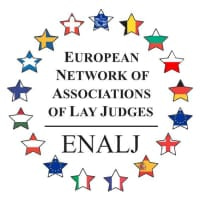UNIVERSITÀ DEGLI STUDI DELLA CAMPANIA LUIGI VANVITELLI (CAPOFILA)
Università degli Studi della Campania Luigi Vanvitelli (UniVan), is a dynamic institution in education and research, as it promotes (a) information and training, (b) support, self-assessment and advice, (c) research, through the establishment of management in strategic areas, a Research Commission and the Service Centre for National and International Research (CSAR).
The Department of Law is involved in numerous national and international research activities, including the doctoral program in “Internationalization of legal systems and fundamental rights”, and has developed expertise through many national projects on the protection EU fundamental rights. The specialization, in particular, on the subject of the Charter of Fundamental Rights derives from highly specialized interdisciplinary research, tending to the integration of legal, historical-philosophical, social and economic knowledge.
- Coordination and management activity, in order to supervise and ensure the proper implementation of the tasks consistent to the schedule;
- Administrative activities, including reporting activity;
- Collaboration with CSBG in the designing of the Manual, including preliminary studies and insights, and autonomous designing of the targeted topic related to Charter adaptation to European legislative macro-systems (national legislative systems with similar characteristics), in Italian and English languages;
- Collaboration with CSBG in the designing of Training Guidelines, in Italian and English languages, and evaluation instruments;
- Providing 3 training courses to lay judges in Italian territory, in Italian language.
- Carrying out activities related to follow-up, exchange of good practices and design of Training Methodology Booklet, in Italian, English and French languages;
- Realization of 1 event.
CONCILIUM SCHLICHTUNG UND BERATUNG GMBH
CONCILIUM Schlichtung und Beratung GmbH (CSBG)'s core activity consist in conciliating disputes among commercial partners and in carrying out related training courses, workshops and seminars including conciliation, mediation, solutions of intercultural conflicts.
CSBG boasts many successful mediations and hundreds of people trained through many training courses. The team is interdisciplinary and includes five mediators, expert lay judges and consultants, as well as a wide range network of trainers and experts.
CSGB has proven experience in training lay judges.
CSBG will lead WP3 and sill support UNIVAN in carrying out WP2 activities. It will handle:
- Collaboration with UNIVAN in the designing of the Manual, including preliminary studies and insights, in German and English languages;
- Collaboration with UNIVAN in the designing of Training Guidelines, in German and English languages, and evaluation instruments;
- Providing to lay judges 1 training course in German territory and 2 training courses in Austrian territory, in German language;
- Carrying out activities related to follow-up, exchange of good practices and design of Training Methodology Booklet, in German and English languages.
- Realization of 1 event.
UNION EUROPÉENNE DES MAGISTRATS STATUANT EN MATIÈRE COMMERCIALE
Union Européenne des Magistrats statuant en matière Commerciale(UEMC) association has the following purposes:
- Establishing and strengthening professional ties between members by means of meetings, study groups, national or international conferences;
- Distributing publications, studies and reports as information means towards members;
- Taking part in studies or assignments, where necessary in conjunction with the legal and administrative authorities of the Council of Europe Member States and with the EU.
- Officially representing its members in dealings with the EU, the Council of Europe, the European Parliament and, more generally, with any European institution.
- Constituting any temporary or permanent group responsible for carrying out studies or conducting researches with respect to harmonization of legislation, jurisprudence, practice, customary commercial procedure and the functioning of commercial jurisdiction within the European countries;
- Ensure through regular meetings the proper coordination of the actions undertaken by all classes of represented association and organization in the fields above indicated.
The association has its official headquarters in France, but it operates 5 other Member States, being composed by 5 national associations:
| Member States | National Associations | Lay Judges registered |
|---|---|---|
| Austria (AT) | Vereinigung der fachmännischen Laienrichter Österreichs | About 150 |
| Germany (DE) | Bundesverband der Richter in Handelssachen e.V. | About 3.000 |
| Belgium (BE) | Union of Belgium Commercial Judges | About 1.200 |
| France (FR) | Conférence Générale des Juges Consulaires de France | About 3.000 |
| Switzerland (CH) | Schweizer Verband der Richter in Handelssachen | About 160 |
| Total | About 7.510 | |
UEMC participated in designing of BEST PRACTICE of Commercial Courts in Europe, in knowledge exchange between Member States associations and in Congresses at the Council of Europe in Strasbourg.
UEMC will lead WP4 andwill support WP2 and WP3 activities. Specifically, will handle:
- Contribution in carrying out studies and insights preliminary to the designing of the Manual;
- Channels and promotes participation in training courses towards lay judges which it represents;
- Publicizing SELECT and massively spread training activities, in order to strengthen the level of participation of Italian Lay Judges;
- Organization of 6 events in Austria, Germany, France and Belgium in order to promote know-how exchange and disseminate SELECT manual and results.
ASSOCIAZIONE NAZIONALE GIUDICI DI PACE
Associazione Nazionale Giudici di Pace (ANGDP) (Italian Lay Judges National Association)was founded in 1994.
It is the first association of Lay Judges born in Italy. Its representatives have been elected in more than half of the Courts of Appeal Judicial Councils and it has several members.
Over the years, the ANGDP has brought forward requests from Lay Judges to Italian institutions in order to improve working conditions and for the recognition of Lay Judges status, provided for by art. 116 of the Italian Constitution. The results obtained include (but is not limited to): the increase in mandates with continuation of functions, compared to previous legislation; the establishment of the autonomous section of the Lay Judges in the Judicial Councils at the Courts of Appeal, with consequent representativeness of the category; the reaching of the entire competence on immigration.
The action of the ANGDP aims to a) define, in compliance with constitutional rules, the functions and prerogatives of the Lay Judges and, more generally, of the entire Italian honorary judiciary; b) formulate and support proposals aimed at strengthening its role, including through professional training.
As part of its action, the ANGDP in 2013 applied to the European Committee of Rights and Social Equalities; the European body in 2016 at the end of its investigation, stated that Italy did not respect the European Social Charter towards Lay judges, as it violated the "principle of non-discrimination".
Since 2014, the ANGDP has actively participated in technical and political ministerial meetings aimed at improving the status of the Lay and Honorary Magistracy; has organized conferences aimed at raising awareness among institutions, the legal profession, the judiciary and public opinion on the importance of the honorary judiciary and on the inexistence of protections and work guarantees provided by the Italian Constitution and by European Union law, despite almost completely fulfilling the function civil and criminal jurisdiction of the first judgment instance.
In 2012, the ANGDP signed the European Charter for Lay Judges and established a Study Centre that is responsible for organizing national and international conferences, as well as developing regulatory projects aimed at improving the judicial system.
The ANGDP is part, in addition to being one of the founders, of ENALJ (European Network Lay of Judges); one of its representatives covered the office of President in the period 2017-2020.
The ANGDP will support WP2, WP3 and WP4 activities. Specifically, ANGDP will handle:
- Contribution in carrying out studies and insights preliminary to the designing of the Manual;
- Channels and promotes participation in training courses towards lay judges which it represents;
- Publicizing SELECT and massively spread training activities, in order to strengthen the level of participation of Italian Lay Judges;
- Organization of 4 events in Italy in order to promote know-how exchange and disseminate SELECT Manual and results.
FB EUROPEAN CONSULTING
FB European Consulting s.r.l. (FBEC) is committed to foster the dissemination of opportunities represented by European development programs and funds, for economic, social and territorial growth.
FB assists and supports private and public bodies in the development of project ideas in those sectors identified as priorities by EU, national and regional funds and programs. FBEC supports the implementation of project actions, in particularly in relation to project management and communication / dissemination of results, developing strategies and carrying out actions. In such framework, FBEC takes care of the management of institutional communication, with stakeholders and media, and realizes online and offline campaigns. FB, moreover, has a long experience in training field as corporate partner of several university and non-university formative programs.
FB will lead WP5 and will handle:
- Implementing the eLearning Platform;
- Carrying out Communication and Dissemination activities (including International Final Conference organization) throughout the entire duration of the project.
EUROPEAN NETWORK OF ASSOCIATIONS OF LAY JUDGES - ENALJ
The European Network of Associations of Lay Judges was founded in Berlin (Germany) in 2012 as a non-profit association, bringing together national associations of lay and honorary judges. The main aim of the association is to safeguard and to strengthen the participation of citizens in jurisdiction as „a fundamental principle in any democratic society" (European Charter) independent from the different systems of judiciary. The association currently encompasses 20 associations from 14 European Countries.
Aims & Objectives
(1) Promotion of civic engagement with regard to public involvement in the administration of justice
This aim is to be realised through the dissemination of information concerning access to the legal system and concerning citizens' involvement in the administration of justice. Such information dissemination shall take the form of, amongst other things, public information events, the establishment of information platforms, the creation of networks and the use of social media.
(2) Promotion of the system of the democratic state
The promotion of the system of the democratic state is to be realised through implementation of the European Charter of Lay Judges, signed on 11 May 2012 in Brussels. The Charter expresses the right of citizens to be involved in the administration of justice as an act of civic emancipation and as an essential principle of any democratic society. It shall pursue the aim of increasing the role of lay judges in the administration of justice in all European states. To implement this Charter, the Association shall inform political decision makers at both the national and European levels as to the indispensability of citizen involvement in the administration of justice and, through statements and by other means, participate in the process of political opinion formation. Furthermore, the Association shall promote the exchange of ideas and opinions with professional judges, public prosecutors and lawyers, with the aim of raising awareness concerning citizens' involvement in the administration of justice.
(3) Promotion of education and training
The promotion of education as well as general and vocational training with regard to public involvement in the administration of justice shall be realised through additional training for lay judges. Such additional training can take the form of, amongst other things, online seminars, conferences, training programmes, networking events, the exchange of proven methods and opportunities to sit in on lectures/seminars.
(4) Promotion of academic study and investigation
The promotion of academic study and investigation in the area of public involvement in the administration of justice is to be realised through own research activities.
(5) Co-operation between member associations
The objectives of the Association are co-operation between members on the following:
- collection and analysis of information on the structures and competencies of lay and honorary judges, arbitrators and lay prosecutors;
- exchange of experiences in relation to the association, training, functions and situation of lay and honorary judges, arbitrators and lay prosecutors;
- provision of expertise, experience and proposals to national and international organisations and/or European Union institutions;
- promoting equal treatment and training for lay and salaried judges;
- undertaking research and training as appropriate.





